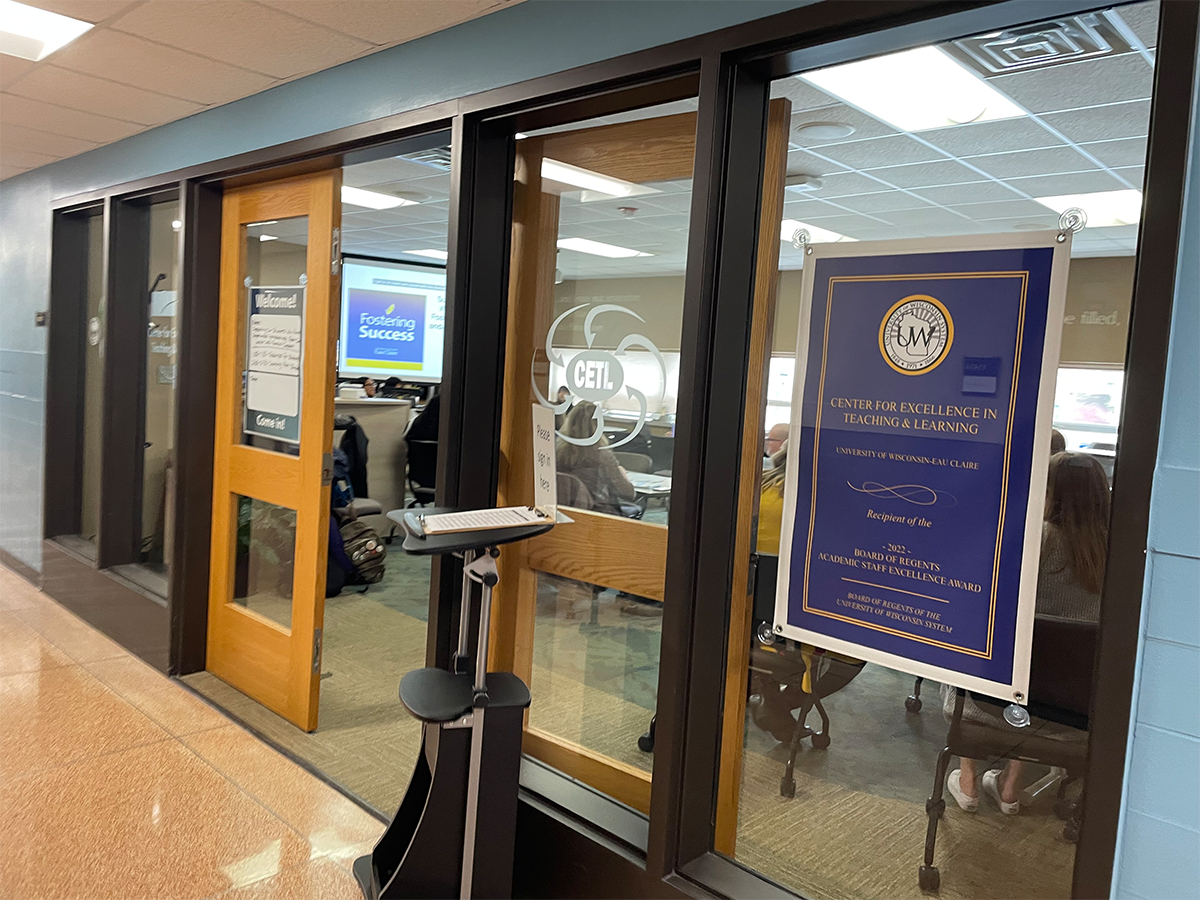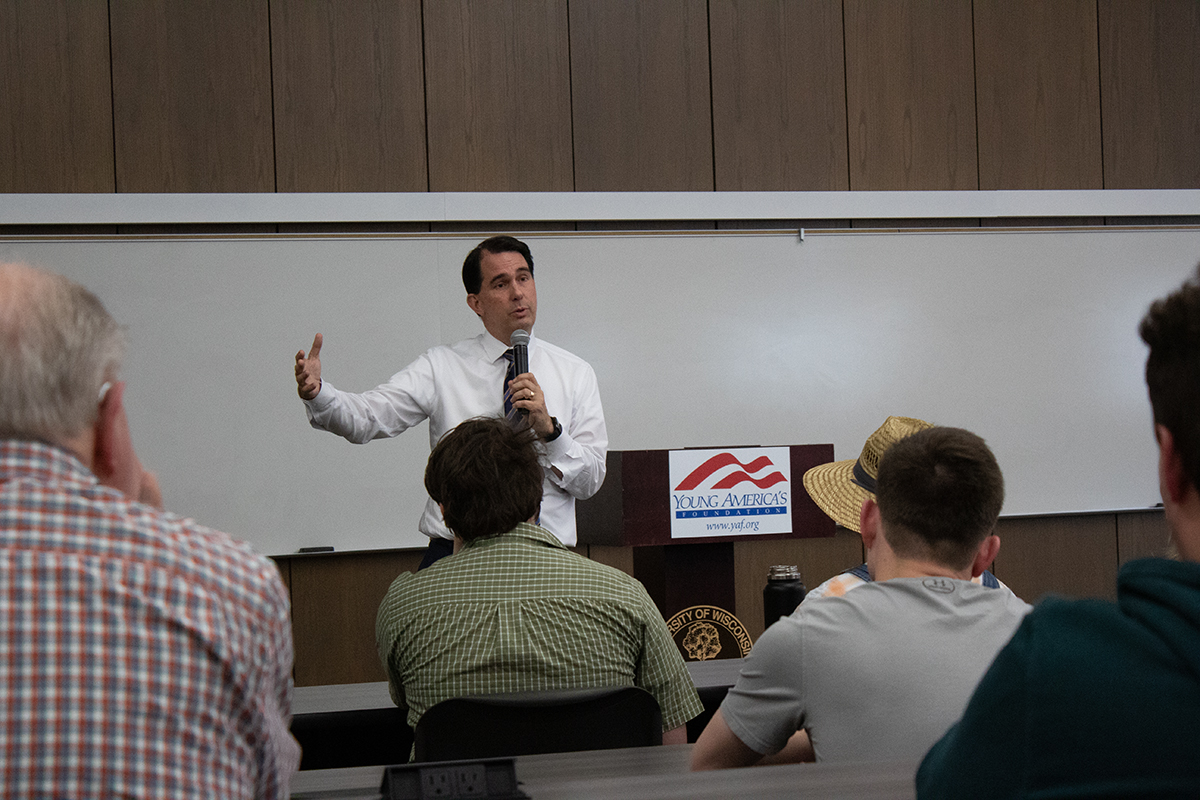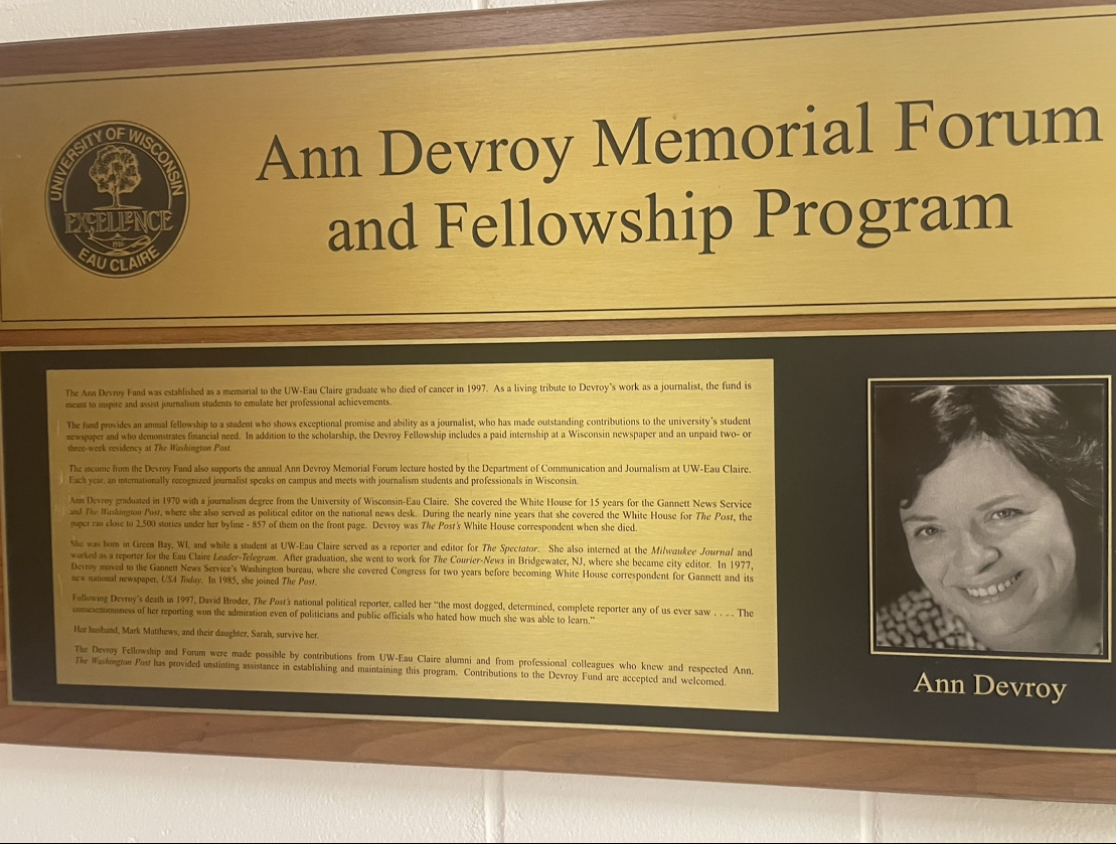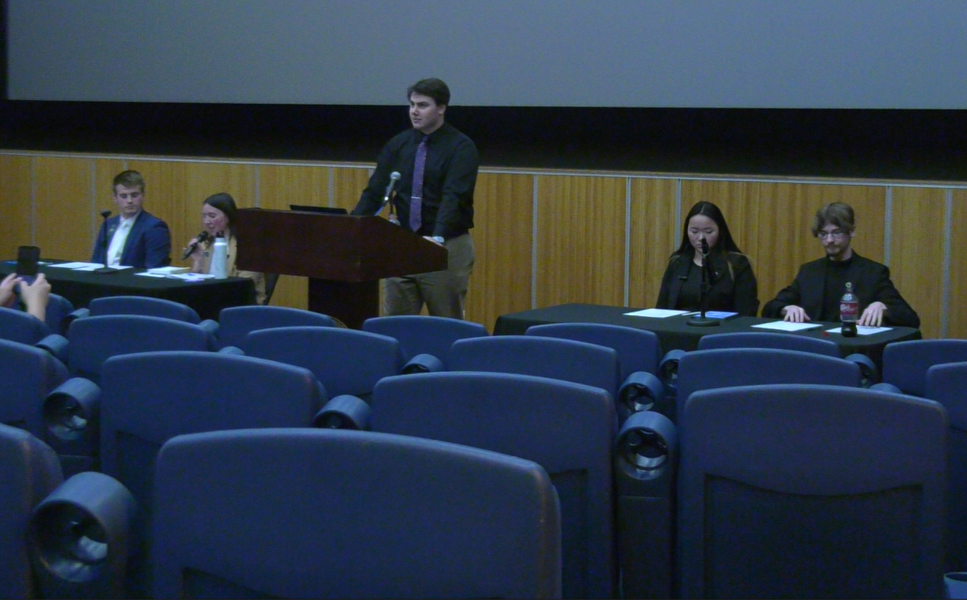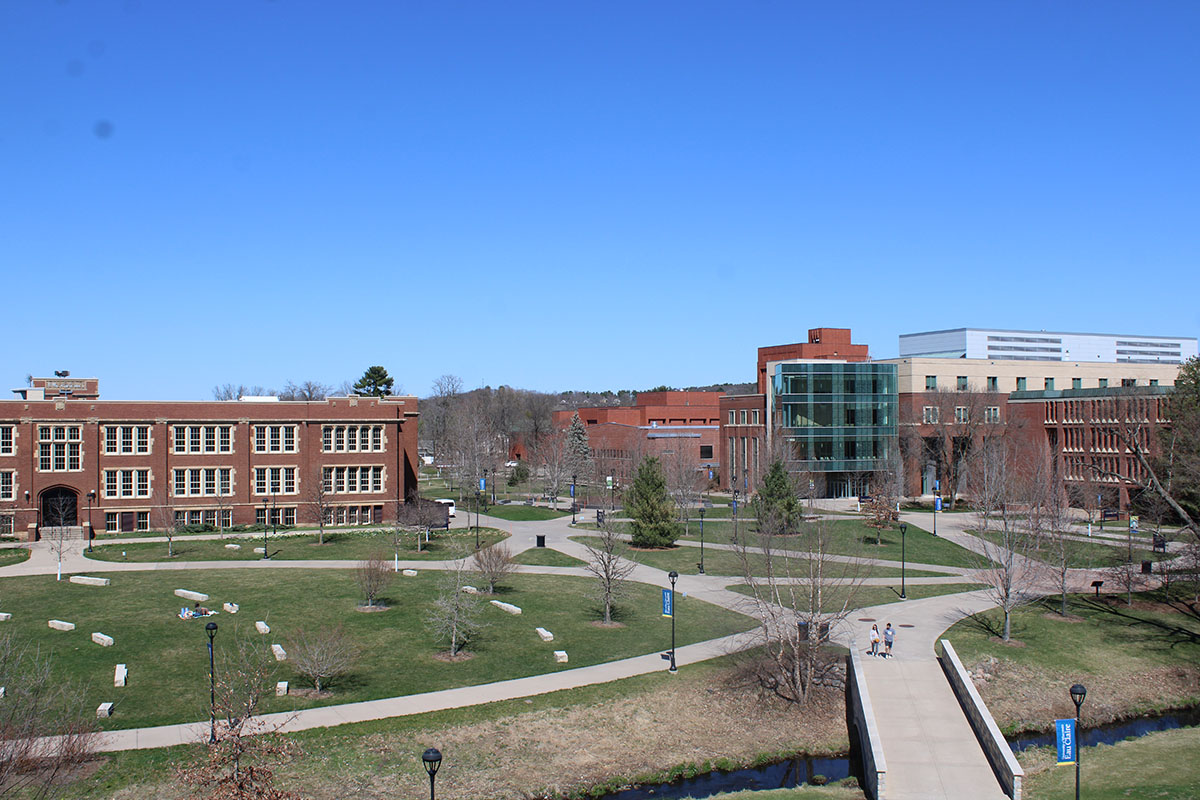Expanding NATO’s or the United States’ presence in the Baltic region could improve security in nations still under Russia’s shadow, several eastern European spokespeople said at this weekend’s Symposium on East Europe.
The annual symposium – now in its 11th year at the university – brought six U.S. and foreign diplomats and professors to campus Friday and Saturday to discuss Russia’s relationship with eastern European nations. Presentations by the event’s speakers were held in Haas Fine Arts Center, with a five-member panel discussion topping off the symposium’s agenda.
Valdis Krastins, who has worked in Latvia’s Ministry of Foreign Affairs and served as ambassador to the Czech Republic, Norway and Finland, kicked off Saturday’s round of presentations and spoke during the panel discussion later that day.
A stepped-up NATO or U.S. presence in the Baltic region would help improve security in the small countries whose relations with Russia are still “not very good,” Krastins said.
“For us . a certain NATO presence in the (Baltic) countries is very important,” Krastins said during Saturday’s panel discussion, adding that seeing NATO fighter planes patrolling airspace in Latvia “gives one a sense of security.”
Krastins said Russia’s response to such patrols has been “frantic,” which he said means Russia is taking NATO’s presence in the region seriously.
But Jack Matlock, an ambassador to Russia under former President Ronald Reagan, said aggressive defensive maneuvers in countries close to Russia could spark a backlash.
“As we militarize our reaction unnecessarily,” Matlock said, “we invite actually the reaction that we should be trying to avoid.”
Krastins said after the discussion, however, that he didn’t think adding defenses would spark any backlash.
“You know, they were threatening to cut off oil and gas for Czech Republic if they would join NATO; nothing happened of the kind,” he said. “If American or NATO presence would be enhanced in our countries or in the BalticSea, there would be a big outcry; nothing would happen.”
Senior Jess Lemere, who attended one of Friday’s presentations and has become interested in eastern European history, said he appreciated the opportunity to meet the region’s political movers and shakers face-to-face.
“Meeting some of the actual key players in the recent history of Europe was very beneficial; it was well worth coming down.”


